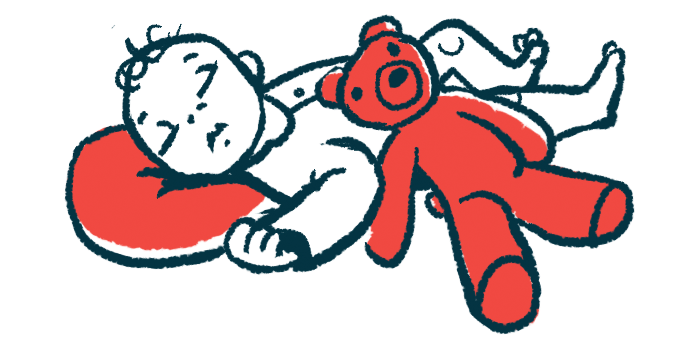Newborn Screening Pilot for SMA in Belgium Grows Into Official Program

A pilot newborn screening (NBS) program for spinal muscular atrophy (SMA) that started in Liège province has transitioned into an official, government-run program spanning Southern Belgium.
Its architects described their experience, highlighting concepts that may be useful for creating similar programs, as well as problems that arose and how they were addressed.
“Our project confirms that a pilot program can be rapidly transitioned into the official NBS program,” the researchers wrote.
The study, “Three years pilot of spinal muscular atrophy newborn screening turned into official program in Southern Belgium,” was published in Scientific Reports.
Three disease-modifying SMA treatments have become available since late 2016, and Spinraza (nusinersen, by Biogen) was added to the country’s public health program in September 2018. A wealth of data link better outcomes to therapy started before disease symptoms are evident, the researchers noted, highlighting the importance of an early diagnosis.
Newborn screening involves testing an infant’s blood sample for genetic mutations that cause SMA, allowing a baby to be diagnosed within days of birth.
In early 2018, a pilot project called “Sun May Arise on SMA” was launched in Liège province.
The program rapidly expanded to cover all of Southern Belgium. It was a collaborative effort involving testing centers, pharmaceutical companies, government agencies, and patient advocacy groups.
It also engaged the general public, through outreach like a dedicated Facebook page. This widespread collaboration was key to the program’s success, according to the researchers.
“Retrospectively, the key element in the successful transition from the trial project to a government-sanctioned public health program was the involvement and unanimous support of all stakeholders from the beginning of the project and throughout its duration,” they wrote.
“A clear governance structure helped to build a strong partnership between pilot study leaders, the regional agency in charge of NBS, and NBS centers. Public involvement gave rise to support from across the political spectrum in Belgium,” the team added.
Newborns were screened for the most common cause of SMA, where both copies of the SMN1 gene — one inherited from each biological parent — have the same mutation, a deletion of part of the gene called exon 7.
Nine newborns with such mutations were identified between March 2018 and February 2021 through NBS. A tenth child, not indentified in a screening, was diagnosed with SMA at 4 months of age after symptoms were noticed. The child was found to have one exon 7 deletion, and one other type of mutation. To date, no other false positives or negatives have been noted.
Most infants diagnosed through the NBS program started on treatment before they were 2 months old — either Spinraza, or with Evrysdi (risdiplam, by Roche) or the gene therapy Zolgensma (by Novartis), both then available through clinical trials.
The researchers noted some factors that allowed for faster turnaround times — for example, better equipment and a dedicated technician allowed a lab to reduce the average time needed to run a test by more than three days.
Investigators also noted some complications. For example, in one child identified as having SMA through screening, the parents initially refused treatment. They were not native French speakers — a language widely spoken in Southern Belgium — and a family member translated at the initial consultation where the diagnosis was shared.
“In hindsight, this might have been avoided if a professional translator had been present during the first consultation,” the team wrote.
A translator was brought into later consultations, but the parents continued to refuse treatment, saying they preferred to wait until their daughter developed symptoms.
However, the baby’s medical team felt that was unethical, given the importance of an early start, to withhold treatment. Ultimately, the medical team consulted a family court, and after a prosecutor offered opinions supporting treatment, the parents agreed to begin treatment.
“1 year after birth the mother stated that they had been in such an emotional state that they were ‘unable to make the right decision’ and now recognized that treatment was the best solution,” the team noted.
Researchers stressed the importance of having clear laws to help navigate cases such as this.
“The present authors believe that the interest of the child must take priority over parents’ rights. A collegial discussion of these potential issues prior to implementation of an NBS program is necessary,” they wrote.
Noting that the high cost of approved SMA therapies “likely … initially hampered the implementation of NBS programs by the political authorities,” the investigators also argued that these prices strongly supported NBS, as it allows for SMA to be diagnosed before symptom onset, when these treatments are most effective.
NBS is run by different government agencies in Northern and Southern Belgium. Leaders in Northern Belgium have pledged to include a similar NBS program for SMA by next year.
The post Newborn Screening Pilot for SMA in Belgium Grows Into Official Program appeared first on SMA News Today.




